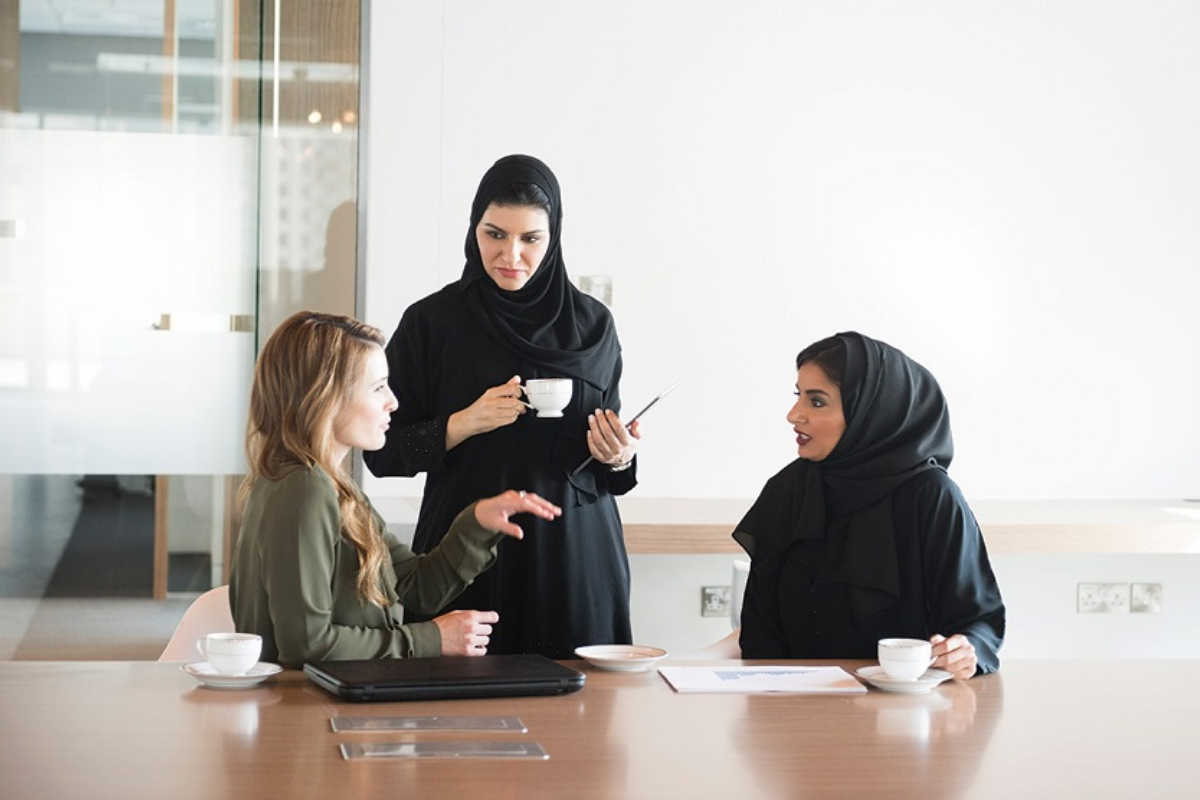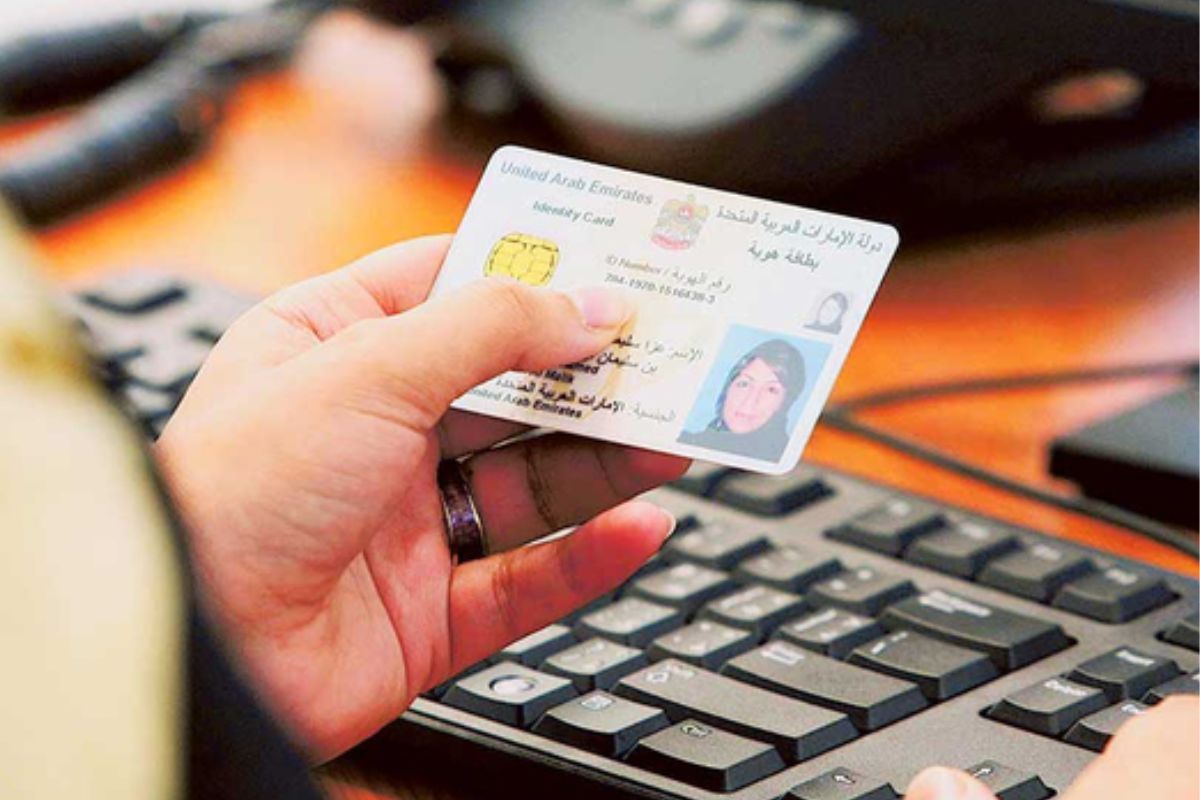Dubai, a vibrant and cosmopolitan city noted for its innovative architecture, diversity of culture, and thriving business scene, has become a bustling hub for working professionals from around the world. The city has seen significant advancements in various sectors over the last few decades, attracting talented individuals looking for promising career opportunities. Among these professionals are women who have played an important part in establishing Dubai's modern economy.
If you're a woman planning to establish a business or thinking of accepting a job in this glamorous city, you may be wondering what life is like for women working in Dubai. In this article, let’s explore what life in Dubai is like as a working woman along with career opportunities, benefits and the challenges faced by women.
Working Women in Dubai

With its strategic location and safe, tax-free environment, it's no surprise that Dubai has become the choice for ambitious men and women seeking to advance their careers. The city's dynamic and inclusive business scene has given birth to a strong community of working women who are contributing significantly to the city's growth and development. These women are not only flourishing in their professional interests but also attaining a healthy work-life balance, thanks to the government's dedication to gender equality and an overall safe and family-friendly atmosphere. As Dubai continues to embrace diversity and build an inclusive environment, the role of working women in shaping the city's future becomes increasingly important and inspirational.
In the UAE, women hold 66% of public sector jobs - one of the highest rates in the world - including 30% in senior leadership and decision-making roles. In addition, women hold 75% of positions in the education and health sectors. Women in the UAE actively participate in the private sector in a variety of roles, including those of entrepreneurs and managers. In accordance with national regulations, women in the UAE enjoy equal access to economic resources, including ownership and control over land and other types of property, financial services, inheritance, and natural resources. Women business owners account for 10% of the UAE's overall private sector. They manage projects worth more than AED 40 billion and make up 15% of the Chambers of Commerce and Industry's boards of directors. There are also 23,000 Emirati businesswomen who have projects worth AED 50 billion! (Source - u.ae)
Career Opportunities for Women in Dubai:

Dubai has established itself as an international commercial and financial center, with a diverse range of job opportunities available across a variety of industries. Women in Dubai are excelling in industries such as banking, hospitality, healthcare, media, technology, and education. Unlike many other countries, the UAE actively promotes gender diversity in the workplace. This inclusiveness has led to a slew of efforts encouraging gender equality and fair pay, hence creating a favorable atmosphere for women to advance their professions. The government has put laws in place to increase the presence of women in leadership positions and company boardrooms. This emphasis on gender diversity has not only created additional professional opportunities for women, but it has also boosted the city's general economy by tapping the latent potential of its female workforce.
What is it like living and working in Dubai as a woman?
As a woman, living and working in Dubai is a wonderful experience! The city provides several job possibilities, a dynamic culture, and a secure environment in which women can truly thrive and pursue their aspirations. Keep reading to know more...
Women's Safety and Security

One of the most tempting aspects of working in Dubai as a woman is the city's secure environment. The city has a comparatively low crime rate when compared to other large cities worldwide, making it a popular choice for expats, notably women seeking job opportunities. Local authorities have put in place a strong law enforcement system and severe laws that prioritize citizens' safety. Dubai's strict laws against harassment and violence, as well as swift legal action, serve as a deterrent to any possible misbehavior. The city's reputation for safety allows working women to pursue their professional and personal goals without worry. In addition, women can easily move around the city utilizing public transportation, including the Metro, Tram, and buses which have designated compartments or seats reserved exclusively for women. Dubai is a fantastic choice for women wishing to live and work in a safe, family-friendly location.
Work-Life Balance for Working Women

Dubai is known for its fast-paced culture, making it difficult for working professionals to maintain a work-life balance. Juggling work and family duties can be challenging for women. However, the city has grown to meet these issues and to provide a safe atmosphere for working women. Several companies in Dubai provide flexible working hours, remote job opportunities, and other perks. Such strategies have proven to be beneficial in assisting women in efficiently managing their personal and work life. In addition, Dubai's diverse range of recreational and leisure activities allows women to decompress and enjoy their time away from work.
Gender Equality at the workplace

In 2018, the UAE Cabinet implemented a law ensuring equal pay for men and women working in Dubai and other emirates. The law is consistent with the government's goal of ensuring the protection of women's rights and supporting their engagement in the national development process. Article 4 of the UAE labour law states that a female worker shall be paid the same as a male worker if she does the exact same job. In this way, the UAE aims to empower and encourage social inclusion for all.
Cultural Sensitivity and Diversity

Dubai has a diversified and multicultural population of people from all over the world. This cultural melting pot offers working women a one-of-a-kind experience, allowing them to engage with people from all backgrounds and get exposure to different points of view. However, as the UAE adheres to Islamic values and practices, it is vital to recognize and respect local customs and traditions. Dress code rules in Dubai are usually more permissive than in other Middle Eastern nations, but women should dress modestly, especially in public places or during business dealings.
Empowering Women Entrepreneurs

Dubai has been actively encouraging and supporting women entrepreneurs, recognizing the value they offer to the economy. The government's many initiatives and programs give financial aid, mentorship, and business development resources to assist women in establishing and growing their businesses. Several female-led startups and successful enterprises have arisen in Dubai, greatly contributing to the city's economic growth. The entrepreneurial ecosystem encourages innovation and creativity, allowing women to prosper and build a name for themselves in their particular fields.
Maternity Leave and Childcare

There are also provisions in the law for working mothers in Dubai. As per the UAE labor law, a female worker is entitled to 60 days of maternity leave, of which 45 days are fully paid and 15 days are half-paid. She may also take an extra 45 days without pay if she becomes ill as a result of pregnancy or childbirth and is unable to return to work, or an additional 30 days fully paid if the infant becomes ill or suffers from a disability. After returning to work, the female employee is entitled to one or two more breaks each day to nurse her child. The woman is allowed to take such breaks for 6 months after giving birth. These breaks are all paid for.
Rules to follow as a working woman in Dubai:
There are laws and customs to bear in mind when considering working in Dubai, some of which apply both to men and women. Here are a few laws working women in Dubai need to follow:
- Make sure you have the right type of visa - it is illegal to work in Dubai on a tourist visa. You must have an employment or work visa sponsored by your employer/company.
- Follow the Dress Code - respect the local customs and religion and make sure to dress modestly. As a general rule of thumb, work attire should cover your shoulders and knees - this goes for both men and women.
- Abide by the UAE labor law - make sure you are familiar with certain provisions in the Labour Law for the women workforce in the UAE.
Other laws to keep in mind in the UAE include - illegal to take photos of people without permission, swearing or making indecent gestures, giving a bounced cheque and many more.
Challenges faced by working women in Dubai:
Despite the numerous opportunities and benefits, women working in Dubai face the following challenges:
- Cultural Norms: Dubai is a city steeped in cultural traditions. While the government has made great efforts to promote gender equality, some conservative cultural norms and practices may continue to impact workplace dynamics and social interactions.
- Work-Life Integration: Striking a balance between a hard career and family duties can be difficult for working women. The pressure to succeed in both professional and personal areas might result in stress and burnout.
- Gender Pay Gap: Despite legal regulations supporting gender equality in the workplace, the gender wage gap continues in several industries in Dubai. Women frequently earn less than their male counterparts for comparable jobs and responsibilities, which can have an impact on their financial independence and long-term professional success.
- Male-Dominated Industries: Certain industries in Dubai, including construction, engineering, and technology, are still dominated by men. Breaking into these industries and dealing with potential bias or misconceptions can be difficult for women attempting to advance their careers in non-traditional fields.
- Dual Responsibilities: Balancing work and family obligations can be especially difficult for working women in Dubai. Cultural expectations may create a greater pressure on women to manage household tasks, childcare, and eldercare alongside their professional commitments, thus leading to conflicts between work and family life.
Also Read:















